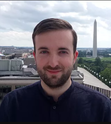Cycle 36 (2020/2021)

36th Cycle: Giorgia Alessandrini, Moncef Chaibi, Kareem P.A. McDonald, Matilde Rocca
Giorgia Alessandrini
Closing the refugee gap: the socio-economic impact of women in the European labour market

This research project examines the existence and consequences of a gender gap concerning women with the status of refugee in the European labour market. The existing literature about the difficulties in accessing the labour market for migrants tends to be either gender-blind or male-focused. Women are only considered when talking about family reunions, this way neglecting their aspirations, skills, and personal life goals, as well as their big economic and social potential. This topic has already been treated by some literature by underlying how migration governance has ignored the power dynamics and implications of gender-segregated labour markets. In Australia, a 30% employment gap was found comparing native and refugee women holding the same language and educational level, suggesting the existence of other factors influencing the chance of being employed, such as social support networks, governmental assistance, recognition of foreign qualifications, social and cultural distance, real or perceived racial discrimination.
The subject is analysed through the following research questions: Are refugee women, victims of unfair access to a job, because of their status and gender? Is there statistical evidence of a segregation phenomenon in the European labour market concerning refugee women? Do stereotypes and discrimination have a real effect on the equal pay legislation and on productivity outcomes in Europe? Do these outcomes change according to the geographical region? The use of both qualitative and quantitative methods gives a bottom-up and human rights-focused turn to this study while searching for statistical evidence of occupational segregation. A comparison between the European and Australian contexts will offer insights into how occupational and income rates change from one geographical location to another.
The advantages of a gender-related study about the refugee gap are both theoretical and practical. The literature may benefit from this new approach focused on women for academic as well as awareness-raising purposes. Moreover, many actors could benefit also in practice, starting from refugee women themselves, who can achieve self-reliance and make full use of their skills and qualifications. Secondly, companies may go beyond the matter of Corporate Social Responsibility and understand it as a positive human capital and economic investment. Finally, the whole society would benefit from a fairer and more sustainable labour market. This includes the fulfilment of 2 of the 17 Sustainable Development Goals set by Europe: Gender Equality and Decent Work and Economic Growth.
Moncef Chaibi
Religious Pluralism in and through International Human Rights Law

For the transcendent issues they embody, Diversity and Pluralism are at the heart of growing concerns for contemporary societies and constitute one of the main areas of research for present social scholarship. Their multidimensionality puts them, indeed, in the crossroads of the three social sciences in charge of exploring the social dynamics, and their management and regulation by state authorities — namely, sociology, political sciences and law.One of the core dimensions of Diversity and Pluralism is related to religious diversity, which tends to embody a wide set of complex issues ranging from individual identity to social cohesion. On the one hand, societies tend to rest on an established social order that erects them as societies, characterizes and animates the dynamics taking place, between individuals, within them. They rest, in other words, on specific patterns of interaction often named as specific behaviors, traditions, culture, values — when not purely and simply the law. On the other hand, the international human right to freedom thought, conscience and belief gives the absolute right to every individual to embrace any belief thy wish. And embracing a belief often comes with specific practices manifesting it to the outside world. With the increase of diversity, in all its dimensions, societies come to face new ways of behaving and interacting, new beliefs and new practices that challenge the established social order on which they rest. In this perspective, the inclusion of the observable diversity by society, state-policy, or even the law itself comes to be questioned. In other words, the increasing diversity questions Pluralism as a system of including diversity within domestic realms. Thus, researching on “Religious Pluralism through International Human Rights Law’’ means to explore these dialectics taking place between religious diversity, as a settled fact, and the corresponding individual right to religious freedom guaranteed by international human rights law. The objective is to explore the dialectics taking place in between the applicable texts and their context of application, thus shedding light on Pluralism as a system of including diversity, materializing its patterns, scope and potential limits.
Kareem P.A. McDonald
A Socio-Legal Study of The Right to Freedom of Religion or Belief in Asylum Centres

Religion has been at the centre of the public and political discourses on the so-called refugee crisis across most of Europe over the last few years. The conflation of the terms ‘Muslim’ and ‘asylum seeker’ has resulted in the emergence of religion as the principal characteristic through which asylum seekers are viewed, and the instrumentalisation of religion as a symbol of difference between a supposedly ‘Christian Europe’ and asylum seekers as ‘Muslim foreigners’. Reports of religiously-motivated verbal and physical attacks against religious minorities in asylum centres, asylum seeker conversions to Christianity, debates over the veracity of these conversions, and the introduction of so-called ‘Bible quizzes’ has contributed to and reinforced these perceptions and beliefs, and lead to intense debates in European societies about existing asylum policies and changing religious demographics, among other issues. Religion is thus a key variable to understanding Europe’s refugee crisis.
The right to freedom of religion or belief in the context of asylum centres is another sub-topic within the broader topic of ‘religion in the European refugee crisis’. Yet, while many of the aforementioned issues have begun to receive more scholarly attention, the topic of freedom of religion in asylum centres remains a highly underdeveloped and under researched topic both at the level of a normative
legal framework and in terms of the empirical reality in asylum centres. The purpose of my research is to: 1) analyse the existing legal framework governing freedom of religion in asylum centres with a view to highlighting the regulatory and protection gaps that currently exist in this area, 2) to investigate the impact of the regulatory and protection gaps on asylum seekers enjoyment of the right to freedom of religion, and 3) to highlight and promote the right to freedom of religion for asylum seekers in asylum centres. My project will be accomplished through a combination of traditional doctrinal legal methods and interviews with asylum seekers, asylum centre management teams, and other individuals and organisations working closely with asylum seekers.
Matilde Rocca

Matilde is a PhD candidate at the University of Padua. Her doctoral thesis focuses on non-state actors, migration, human rights law and the law of the sea

